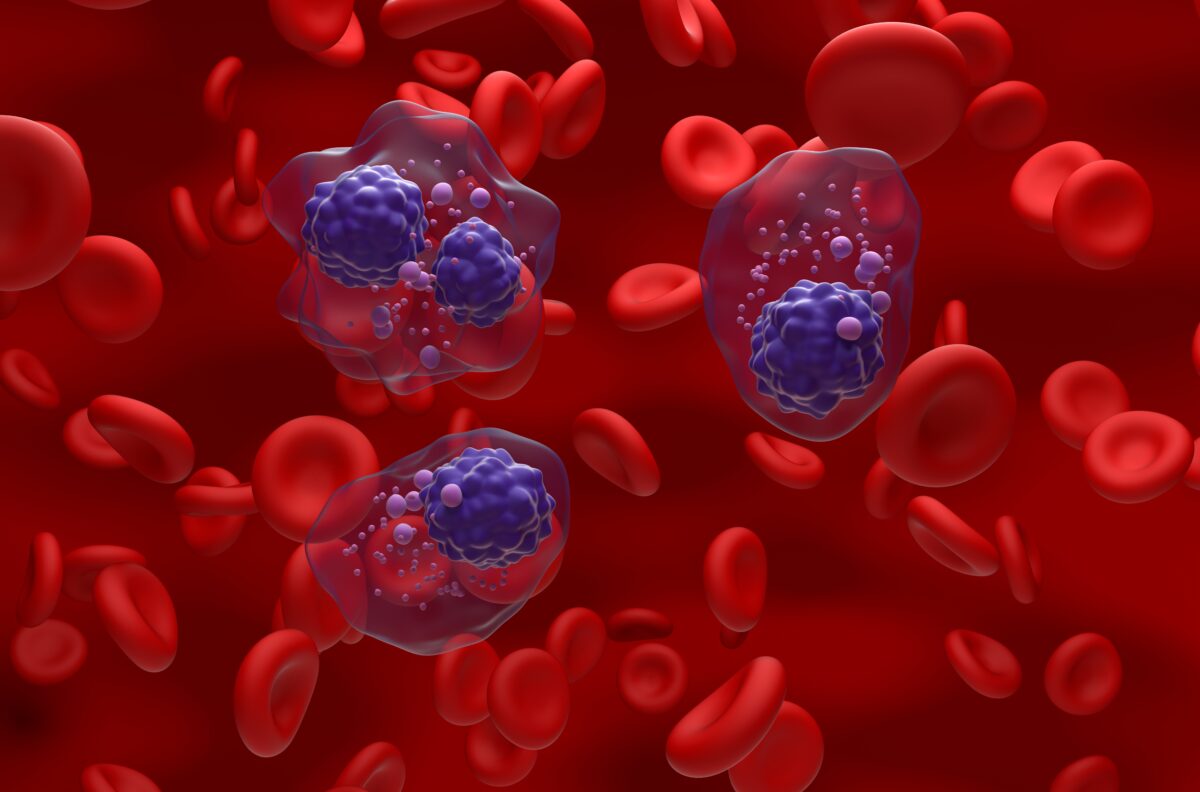The US Food and Drug Administration (FDA) granted accelerated approval to Iqirvo (elafibranor), a novel treatment for primary biliary cholangitis (PBC) in combination with the current standard of care ursodeoxycholic acid (UDCA), for adults with an inadequate response or poor tolerance to UDCA. The FDA’s approval comes on the condition that further studies confirm its clinical benefits.
This decision marks a significant advancement in the management of this rare and chronic liver disease.
Elafibranor initially received a Breakthrough Therapy designation in 2019, following promising results from a Phase II trial. It was originally developed by GENFIT and licensed exclusively to Ipsen in 2021.
PBC is an autoimmune liver disease that can worsen over time. It is characterized by the slow immune-mediated destruction of the small bile ducts within the liver. This causes bile to accumulate in the liver and injures liver cells, eventually resulting in cirrhosis (scarring of the liver) and potential liver failure.
Liver disease is a huge global health problem. About 2 million deaths per year worldwide have been attributed to liver cirrhosis. In 2019, 1,472,011 deaths were caused by liver cirrhosis and other chronic liver diseases, which jumped 45.32 percent since 1990.
The cause of PBC is unknown. Researchers estimate individual genetic susceptibility and environmental and epigenetic factors as possible triggers. PBC can usually be diagnosed with a blood test, followed by an ultrasound scan and, occasionally, a liver biopsy.
PBC is a lifelong condition that can affect anyone — approximately 100,000 people in the US and rising in global prevalence. However, it is generally observed in more females than males. The incidence of PBC increases with age, with the average age range between 40 to 60 years.
Iqirvo was approved based on the Phase III data of the global ELATIVE trial, which showed a significant reduction in alkaline phosphatase (ALP) levels, which is known to be a marker of the progressive nature of PBC and increase the risk of a liver transplant.
“The approval of Iqirvo will allow healthcare providers in the US to address an unmet need with the potential to significantly reduce ALP levels for our patients with PBC,” said Dr. Kris Kowdley, director at the Liver Institute Northwest, Washington, and a primary investigator on the ELATIVE study, in the press release on Iqirvo’s approval.
XTALKS WEBINAR: Leveraging Functional Service Providers for Enhanced Efficiency in Drug Development
Live and On-Demand: Tuesday, July 23, 2024, 1pm EDT (6pm BST/UK)
Register for this webinar today to learn about the strategic advantages, including expert domain knowledge, global strategies and operational flexibility, for biotech and biopharma companies in engaging functional service providers for drug development.
Understanding Primary Biliary Cholangitis
PBC primarily affects the liver’s bile ducts. This chronic disease causes the bile ducts to become inflamed, damaged and eventually scarred, leading to a dangerous buildup of bile in the liver, known as cholestasis.
The symptoms of PBC do not always show up in the early stages. American Liver Foundation’s chief executive officer Lorraine Stiehl commented in an article on PBC awareness (September 10 is International Primary Biliary Cholangitis Day), “Many people with PBC tell us how surprised they were to find out they had the disease.”
Without effective intervention, this disease can progressively damage the liver. Bile buildup can lead to liver fibrosis, cirrhosis and potentially end-stage liver disease, necessitating a liver transplant.
Christelle Huguet, executive vice president, head of Research and Development at Ipsen, further explained in the same press release, “For a significant number of people living with PBC, available treatments do not control the condition and may exacerbate symptoms of PBC.”
Carol Roberts, executive president of PBCers, a US patient advocacy group supporting those with PBC, explained that promoting early diagnosis and education about PBC, as well as developing new treatments, is crucial to address the needs of affected individuals.
PBC can severely impact the quality of life due to symptoms like fatigue and severe itching (pruritus). “People living with PBC can feel like the symptoms they experience are dismissed by family members, friends or even their doctors, because they have not experienced something similarly disruptive in their lives. People with PBC may also feel uncertainty around the disease progression and if, or when, their liver health may deteriorate,” noted Roberts in the press release.
Iqirvo introduces a potentially paradigm-shifting approach to PBC management. By reducing bile acid production, Iqirvo aims to mitigate the underlying processes that lead to bile duct damage and cholestasis.
With Iqirvo, the long-term outlook for PBC patients could improve, possibly extending the period before severe complications arise and thus enhancing overall life expectancy and quality.
How Iqirvo Surpasses UDCA in Clinical Trials
Elafibranor is classified as a peroxisome proliferator-activated receptor (PPAR) agonist. This drug interacts with PPAR-alpha and PPAR-delta receptors, which play critical roles in lipid metabolism and the inflammatory responses within the liver. By modulating these pathways, Iqirvo helps decrease liver inflammation and slow the progression of bile acid-related liver damage.
Administered as an 80 mg tablet once daily, Iqirvo can be taken with or without food, offering convenience to patients. It’s the first new medication approved for PBC in nearly 10 years, addressing a significant gap in treatment options for patients who respond poorly or have low tolerance to UDCA.
Iqirvo can be taken with or without food, offering a practical and flexible regimen for individual lifestyle needs. The simplicity of its administration is significant in chronic conditions like PBC, where consistent, long-term treatment is crucial for managing the disease effectively.
The Phase III ELATIVE clinical trial demonstrated that Iqirvo, either alone or in combination with UDCA, significantly improves biochemical markers of liver health more effectively than UDCA alone. Notably, the trial found that 51 percent of the participants treated with Iqirvo achieved the primary endpoint of a cholestatic biochemical response at Week 52, compared with only four percent in the placebo group.
In addition, 15 percent of the patients in the elafibranor group showed normalized levels of ALP compared to placebo.
This response is critical as improved biochemical markers are strongly associated with better clinical outcomes in PBC, including reduced risk of liver failure and transplantation.
Some of the most common side effects noted were weight gain, abdominal pain and gastrointestinal symptoms.
Future Studies in PBC Management
Iqirvo’s accelerated approval underscores the urgent need for new therapies in PBC. Ipsen, the drug’s developer, is actively conducting additional research, including the confirmatory ELFIDENCE trial, to provide more comprehensive data on Iqirvo’s efficacy and safety.
In addition to Iqirvo, Gilead Sciences’ seladelpar, an investigational oral treatment, has shown promising results in improving liver disease progression and reducing itching in patients with PBC, according to interim results from the ongoing ASSURE study. In this open-label trial, 70 percent of patients receiving a daily dose of 10 mg seladelpar achieved a significant composite endpoint (lowered ALP levels), and 37 percent reached ALP normalization within 12 months. The study also highlighted a rapid and lasting reduction in pruritus among those with moderate to severe symptoms. The FDA is currently reviewing a New Drug Application (NDA) for seladelpar, with a decision expected by August 2024.
Pruritus — a debilitating itch that has led to severe sleep deprivation in some patients — has been found to be undertreated in a study conducted on the quality of life of those affected by PBC. The GLISTEN clinical trial by GlaxoSmithKline is hoping to evaluate the efficacy of linerixibat in reducing pruritus symptoms in patients with PBC.
Adopting certain lifestyle changes can also alleviate symptoms and slow disease progression. Recommendations include starting a reduced sodium diet to manage fluid retention, reducing fat intake if overweight and incorporating regular physical activities like walking.
These measures, alongside consistent medication adherence, can significantly enhance quality of life and prolong disease-free periods for those living with PBC.












Join or login to leave a comment
JOIN LOGIN